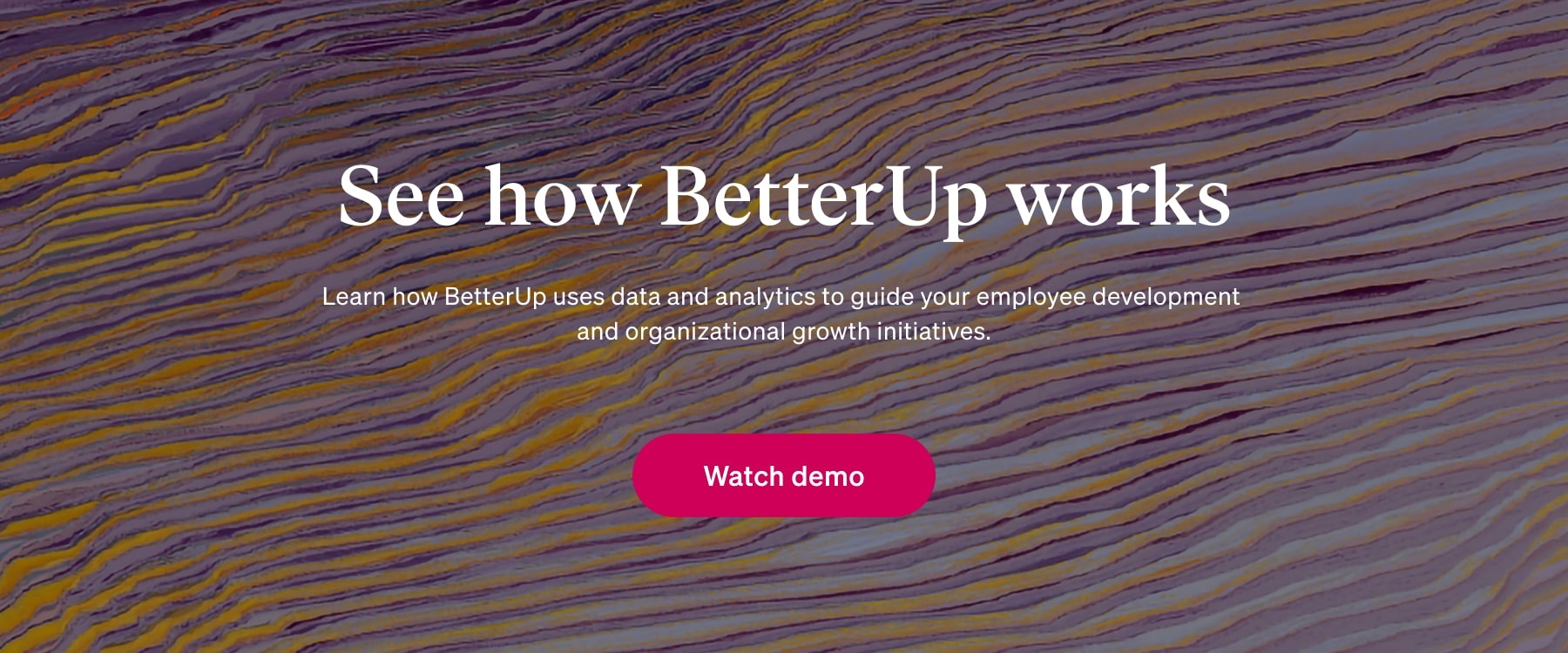-
For Business
For Business
Products
LeadBuild leaders that accelerate team performance and engagement.
Care™Drive productivity through sustained well-being and mental health for all employees with BetterUp Care™.
Solutions
Sales PerformanceTransform your business, starting with your sales leaders.
Diversity & InclusionFoster a culture of inclusion and belonging.
Customers
Case StudiesSee how innovative companies use BetterUp to build a thriving workforce.
- For Individuals
-
Resources
Resources
LibraryBest practices, research, and tools to fuel individual and business growth.
EventsView on-demand BetterUp events and learn about upcoming live discussions.
BlogThe latest insights and ideas for building a high-performing workplace.
ResearchInnovative research featured in peer-reviewed journals, press, and more.
- About
Declining capabilities in productivity and wellness signal a need for worker support

Many companies invite workers to bring their “whole selves” to work. It’s an invitation for employees to show up authentically, to bring their passions and interests along with their ideas and innovation. Do you love the Beatles? Hang up that Abbey Road poster. Are you obsessed with yoga? Organize some lunchtime sun salutations.
As employers encourage workers to unleash their true selves, they may realize there are human elements workers bring to the office involuntarily. Capabilities like focus and resilience are part of employees’ “whole selves” as much as their favorite band or go-to exercise regimen.
BetterUp data reveal that predictors of well-being and productivity are down, carrying significant and dismaying implications for the workplace. The data call employers to offer enhanced employee support, or risk the long-term effects of a declining workforce.
Data shows peak performance and well-being are in decline
Looking across our member database, we examined the average baseline scores for human capabilities related to performance and well-being. The results alarmed us. Scores declined in all categories: cognitive agility, resilience, emotional regulation, focus, and strategic planning. Let’s jump in.

Average scores in strategic planning experienced the biggest decline, dropping 3.6 points between 2020 and 2021. The scores, like those in nearly every other category, had fallen in 2019 and 2020. But the rate of decline had lessened between those years before accelerating in 2021, when the average score fell from the baseline by 10.5 points.
Strategic planning is the ability to consider different ways to reach a desired outcome. It’s a skill that’s equally important to individuals as it is to organizations because it allows people to grow and achieve the goals they envision for themselves. Poor strategic planning can lead individuals to set unrealistic goals and name too many priorities. In an era characterized by stress and burnout, workers need clear, balanced objectives to guide and direct them.
The next biggest drop in average score occurred in focus, which saw score averages plummet by 3.1 points between 2020 and 2021. Average scores in focus created patterns similar to those in strategic planning; scores declined between 2019 and 2020 but to a lesser degree. They fell more dramatically in 2021, which saw scores depart from the baseline by 13.2 points.
Focus saw the most dramatic declines from its original baseline score of all the categories. Recent research may offer some insight into workers’ distraction: In 2021, U.S. workers said they were diverted from work due to kids, aimless scrolling, texting, gaming, or looking for another job. The problem appears to apply regardless of work arrangement. Forty-two percent of remote workers said they’re easily distracted on the job, while 35% of onsite workers agreed.
Between 2020 and 2021, resilience and cognitive agility scores declined by 2.7 points. Emotional regulation scores saw the smallest change, falling 2.6 points in 2021. These capabilities predict how workers engage with the unexpected. Cognitive agility measures flexibility, and resilience and emotional regulation assess how individuals respond to challenges. Their decline should raise a red flag for employers. Qualities like resilience correspond with engagement — a major predictor of productivity, retention, and well-being.
While scores in nearly all categories fell between 2019 and 2020, they fell more dramatically between 2020 and 2021 across the board. Scores in resilience, focus, and strategic planning declined less during the first two years, signaling possible improvement. But between 2020 and 2021, all scores dropped more rapidly.
Employees are in need of support more than ever before
It’s tempting to attribute the boosted decline in scores to the pandemic because of the timeline of the data. But the numbers don’t speak to specific drivers of falling scores. Still, other research has drawn parallels between pandemic challenges and worker performance. A report from insurer Cigna, for instance, found loneliness to impact workers’ productivity and health.
No matter the exact cause of declining scores, it’s clear people need support, especially at work. High-profile companies have been making headlines since the onset of the pandemic for introducing creative benefits designed to reduce burnout and stress. Financial services company Fidelity, for example, boosted paid time off allotments for full- and part-time employees, in addition to providing benefits for parents and caregivers.
Employers are also looking at ways to enhance worker capabilities by adjusting internal operations. Salesforce is reportedly experimenting with a week-long hiatus from meetings — though meetings in moderation have been shown to promote social learning and growth.
Organizations that address worker capabilities appear to be rewarded. Positive mental health at work boosts team agility and helps employees manage stress and grow more resilient.
As employers invite workers to be more authentic around the office, they may consider encouraging employees to be more vulnerable, as well. An open dialogue around mental health and productivity struggles tells workers that it’s OK to ask for help. And it provides employers an opportunity to foster improvements around important skills.
Erin Eatough, PhD
Sr. Insights Manager





